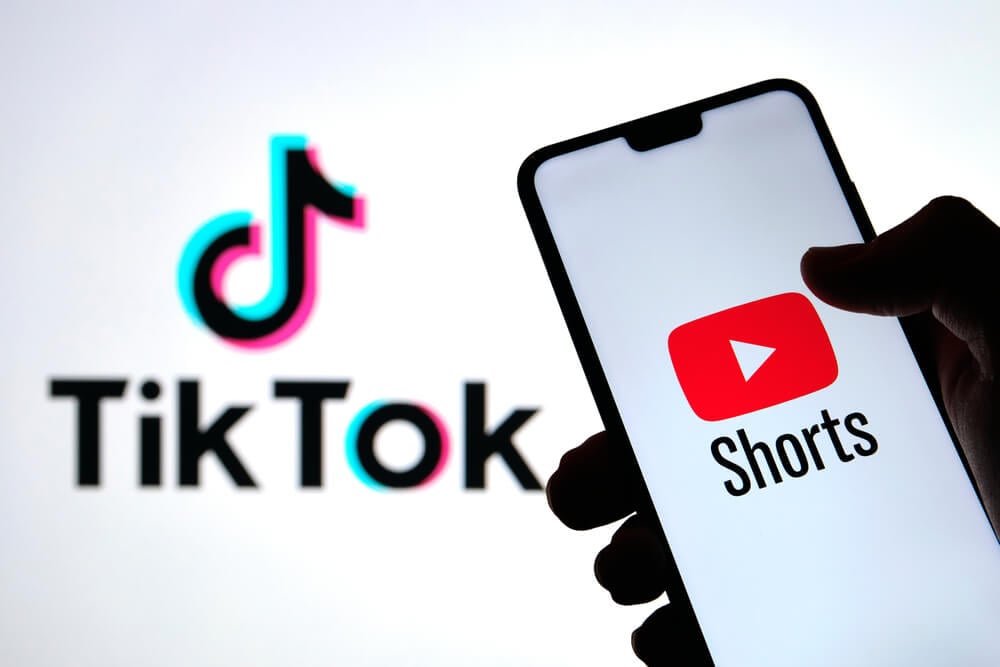Google Reduces Visibility in Search Terms Report: What You Need to Know

Google, like many other platforms, undergoes frequent changes and algorithm updates to further optimize the user experience. If you want your business to keep up and adapt to these updates, it's important to be aware of them as they develop to help you adjust.
Here is some information about Google's latest changes to their search terms report and how they could affect your marketing strategies.
What is Google's Search Terms Report?
Google's search terms report is a certain feature included with Google Ads that enables advertisers to view specific terms that triggered pay-per-click ads to appear. The report also gives advertisers insight into the relevance of those terms compared to the terms the ad is targeting.
The ability to see these search terms gives marketers the ability to learn about which terms are worth targeting with their ads and which are worth dropping. It also brings to light certain terms that advertisers may not have even considered targeting until seeing them in the report. Unfortunately, the latest changes made to the search terms report may make this feature less helpful to marketers.

The New Changes to the Report and What They Mean
Historically, advertisers have been able to see various search terms with both high and low volume in the search terms report. With the new update, Google Ads users will no longer be able to see search terms with lower volume.
Specifically, on September 1, Google announced:
"Starting September 2020, the search terms report only includes terms that a significant number of users searched for, even if a term received a click. You may now see fewer terms in your report."
Google cited the reason for the change was to "maintain our standards of privacy and strengthen our protections around user data." What this means for marketers is that they won't be able to see many terms that people are actively entering in Google, terms which may be beneficial to target in campaigns. Subsequently, marketers may be wasting ad spend on inefficient ads that could benefit from better optimization. While it's unclear what Google means by "significant," the move has led many advertisers to worry about the future of their campaigns.
How to Adjust to the Changes
If you want to know how to make your keywords more visible on Google in light of these changes, there are some steps you can take. The following are some solutions that the CoxNext team has determined will help you adjust to the alarming update.
Run Dynamic Search Ads
Through the use of dynamic search ads, PPC teams can find new additional keywords that effectively convert, which enables advertisers to incorporate them into search campaigns. Search query reports can also reveal certain gaps in the keyword coverage for traditional search campaigns.
For example, if you had an ad campaign promoting different types of beverages, you could have a dynamic search ad campaign that uses auto-targeted individual ad groups for juice, water, soft drinks, and others. Each unique ad group can include a custom description line, and Google can then provide dynamically generated headlines depending on the product.
Check Bing Search Query Reports
Advertisers who also run ads on Bing can use the platform to provide them with other keyword ideas. Through Bing, you can pull terms that have high volumes of traffic with no conversions, which you can then test as negatives in Google PPC campaigns. In addition to generating negative term ideas, you can also use Bing reports to determine if there are converting keywords and incorporate them into your Google campaigns.
For instance, you may find that a keyword in a Bing report has hundreds of searches per month, but doesn't convert, in which case you can run a negative keyword test with it, while simultaneously adding new converting keywords into the same campaign.
Use Google Search Console
You can use Google Search Console as another tool to look at when optimizing in Google Analytics to determine which search terms are generating traffic. This is why it's important to have Google Analytics linked to Google Search Console for added capabilities and insights.
In Google Search Console, you could simply click on "Performances" and look in the "Queries" tab, where you can scroll through every keyword for which your website ranks in search engines.
Ultimately, if you can pivot your digital advertising strategy with these and other techniques, you'll be able to work around the recent update to Google's search term reports.
Adjust to the New Update with Good Digital Marketing
Although the new limitations placed on search terms may be frustrating for many marketers, they don't have to be detrimental to your campaigns. Through the use of Google dynamic search ads, Bing search query reports, and Google Search Console, along with other strategies that use your marketing dollars effectively, your ad campaigns can still succeed.
Related Posts
Unveiling the Secrets: CoxNext Experts Answer 5 Vital Questions on Enrollment Marketing!
May 24th, 202323 Retargeting Statistics You Need to Know
April 26th, 2023Why Partner With Multiple Agencies When One Is All You Need?
April 20th, 202310 Key Tips for Using Video Shorts in Social Media Marketing
April 12th, 20238 Reasons to Use Video Shorts in Marketing
April 5th, 2023What is a White Labeling Service and Why Should You Consider It?
March 29th, 2023What is the Future of TV Advertising?
March 22nd, 2023Marketing Solutions for Every Step of the Buyers’ Journey
March 13th, 20237 Ways to Know Your Marketing Isn’t Working
February 28th, 2023Categories
- Marketing Strategy (90)
- Digital Advertising (47)
- Digital Marketing (28)
- Content Marketing (17)
- OTT (16)
- ROI (13)
- Content Creative (12)
- Agency Partnerships (11)
- Social (10)
- Video (8)
- COVID-19 (7)
- Advanced Data (6)
- Research (6)
- Technology (6)
- Cox Enterprises News (5)
- Generational Marketing (5)
- Industry: Travel (5)
- Industry: eCommerce (5)
- Advertising Budget (4)
- Industry: Higher Education (4)
- Social Media Marketing (4)
- E-commerce (3)
- Podcasts (3)
- Recruitment Marketing (3)
- Search (3)
- Social Media (3)
- Branding (2)
- Inclusive Marketing (2)
- Industry: Cannabis (2)
- Industry: Home Improvement (2)
- marketing budget (2)
- CoxNext News (1)
- Industry - Automotive (1)
- Industry: Healthcare (1)
- Influencer Marketing (1)
- Podcast Advertising (1)
- Privacy (1)
- working with an agency (1)








.jpg)
.jpg)
%20(1).jpg)
